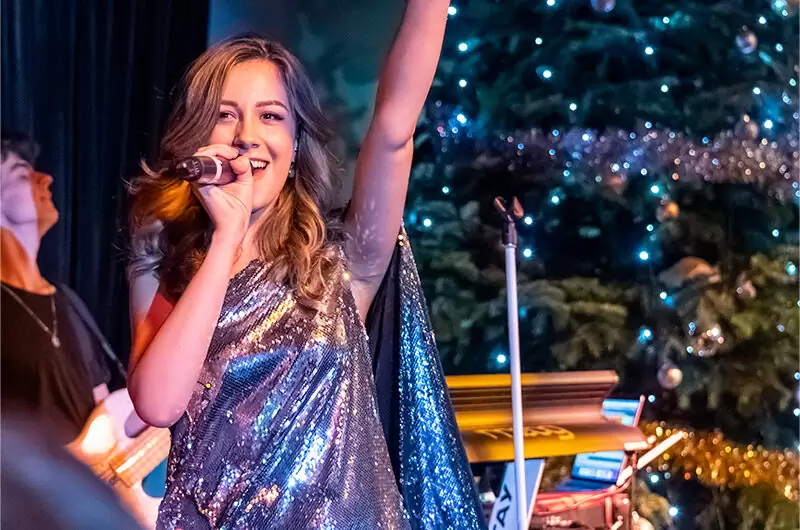The live music industry has always embraced innovation, but recent technological advancements are reshaping the way performances are experienced and delivered. From virtual reality concerts to advanced sound engineering tools, these innovations are not only enhancing the audience experience but also transforming the way artists and venues operate.
1. Virtual Reality and Augmented Reality
One of the most exciting innovations in live music is the integration of virtual reality (VR) and augmented reality (AR) technologies. These immersive technologies allow fans to experience live concerts in a completely new way, either by attending virtual performances or enhancing real-world shows with digital elements.
With VR, fans can attend a concert from anywhere in the world and feel as though they are physically present at the venue. This technology is especially valuable for global audiences who might not have the opportunity to attend a live show in person. AR, on the other hand, can enhance physical concerts by adding digital effects to the performance, creating a more interactive and visually stunning experience.
2. Live Streaming and Hybrid Concerts
The COVID-19 pandemic forced many live events to move online, and while in-person concerts have returned, live streaming has remained a popular option. Hybrid concerts, which offer both in-person and live-streamed options, are now a major trend in the music industry.
Live streaming allows artists to connect with fans who cannot attend in person while also providing an additional revenue stream for both artists and venues. The quality of live-streamed performances has also improved significantly, with better cameras, sound equipment, and platforms designed to offer high-quality audio and video.
A live music entertainment agency that incorporates live streaming into its offerings can help artists reach global audiences, creating new opportunities for both performers and fans. These hybrid events are likely to continue shaping the future of live music, making concerts more accessible than ever.
3. Advanced Sound Engineering and Spatial Audio
Sound quality is critical to the live music experience, and recent advances in sound engineering are elevating performances to new heights. Spatial audio technology, in particular, is revolutionising the way audiences experience music at live events. Unlike traditional stereo sound, which is delivered through two channels, spatial audio creates a three-dimensional sound environment that mimics real-life hearing.
With spatial audio, fans can feel as though the sound is coming from all directions, creating a more immersive experience. This technology is particularly useful for large venues where it can be challenging to deliver consistent sound quality across the entire audience.
For a live music entertainment agency, working with sound engineers who use spatial audio and other advanced technologies can significantly enhance the quality of performances. Whether at a small club or a large festival, ensuring the best possible sound is key to delivering memorable live music experiences.
4. Artificial Intelligence and Data Analytics
Artificial intelligence (AI) and data analytics are playing a growing role in live music performances. From improving stage lighting to personalising audience interactions, AI can automate various elements of a live show, making it more dynamic and responsive.
AI-powered lighting systems, for example, can adjust in real-time to match the music’s tempo and mood, creating a synchronised visual experience that enhances the performance. Additionally, data analytics can help artists and agencies understand audience preferences, optimise setlists, and plan future tours based on demand in specific regions.
5. Wearable Technology and Interactive Experiences
Wearable technology is another exciting development shaping the future of live music performances. Fans can now wear devices that sync with the music, lighting up in time with the beat or even vibrating during specific moments of a performance. This technology creates a more interactive experience, allowing the audience to feel physically connected to the performance.
For artists, wearable tech offers new ways to engage with fans, and for venues and agencies, it provides an opportunity to offer unique, immersive experiences. A live music entertainment agency that incorporates wearable technology into its events can enhance audience participation and create more memorable, engaging shows.








